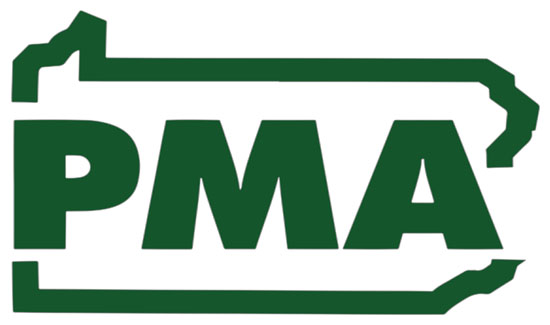Governor’s Budget Plan Harms Business, Costs Jobs

In preparing his budget proposal, Governor Tom Wolf apparently missed, or conveniently ignored, news reports of the January U.S. job totals.
A CNBC headline will suffice as a reminder: “Payrolls surge by 304,000, smashing estimates despite government shutdown.”
Economists discussing the record job numbers did not credit higher taxes, (energy taxes included), a higher minimum wage, or costly changes in the way businesses file taxes. In an exhausting repeat of past budget proposals, says David N. Taylor, PMA President & CEO, the governor wants all three.
“We want it to be the smart business decision for companies to locate, hire, and expand in our commonwealth rather than in one of our competitor states. That private sector investment results in more jobs, higher wages, and a better quality of life for all Pennsylvanians,” Taylor said. “We regret that Governor Wolf’s proposed budget would work against that goal by imposing new and additional taxes on Pennsylvania energy, corporate tax complexity with no tax windfall, and staggeringly high government mandated labor wages that will hurt the very people he says he wants to help.”
The record national job numbers, which in turn are pushing wages higher, are being driven by Congress’s Tax Cuts and Jobs Act of 2017, regulatory relief, and overall less government meddling. In his response to the governor’s spending plan, Majority Leader Brian Cutler (R-Lancaster) took up that theme by saying the role of government should be to help workers transition from lower paying jobs to higher, family-sustaining jobs. The Republican Caucus, Cutler said, will soon be introducing such a plan.
Masking the minimum wage proposal as policy separate from the budget – Governor Wolf called his plan a jobs bill, but the facts prove it’s a job killer.
A Congressional Budget Office report showed an increase to $10.10 an hour would result in the loss of 500,000 to 1 million jobs nationwide. Pennsylvania’s own Independent Fiscal Office (IFO) showed an increase would have a similar negative impact on the state level. A recent University of Washington study found Seattle’s $13 an hour minimum wage rate led to employee hours dropping by nine percent with average monthly income for low-wage workers falling by $125.
Despite year-to-date revenues coming in above estimates, Governor Wolf’s spending plan not reduce the growing fiscal pressure on the Commonwealth.
“Even with this economy and the higher revenue number, we are still not meeting the growth in expenditures,” said Senate President Pro Tempore Joe Scarnati (R-Jefferson).
Scarnati added he’s pleased the governor is talking about lowering the Corporate Net Income Tax (CNI) rate, but it should be a straight-forward reduction, not done by “smoke and mirrors.”
Wolf’s budget includes mandatory unitary combined reporting of business taxes, which would grant the Pennsylvania Department of Revenue the powers of the IRS in an attempt to impose Pennsylvania tax liability on a business’ operations in other states. In fact, Pennsylvania’s Secretary of Revenue already has “expense add-back” authority to disallow fraudulent transactions, which means there is no hidden pot of Leprechaun gold waiting to be found.
“Business look at the CNI before choosing a state,” Scarnati said. “I can guarantee you that ours is a big detriment to business coming here.”
Additional energy taxes would drive businesses away as well, when energy independence and manufacturing are precisely what the budget should be celebrating, said House Speaker Mike Turzai (R-Allegheny).
“The petrochemical plant Shell is building in Beaver County is employing 800 iron workers and members of other trades,” Turzai said. “It’s going to create over 600 permanent, high pay jobs. Encouraging more of these plants to come to Pennsylvania should be at the top of our budget list.”
Rather, the governor’s plan for additional taxes on the energy industry would not only hamper further economic expansion but is based on a false premise that the industry is somehow receiving favorable treatment.
Since 2012, Pennsylvania has generated $1.7 billion in new revenues from the existing impact tax, API-Pennsylvania notes. And the tax collected from production in 2018 will total $247 million to be spent across the state this April, the largest-ever annual revenue generated.
“Because it is being requested for the fifth time in five years, questions continue to be asked about good reasons for the continued targeting of Pennsylvania’s natural gas industry through a counterproductive and anti-consumer severance tax,” said Stephanie Catarino Wissman, API’s Pennsylvania Executive Director. “In the end, if enacted, this additional tax will discourage investments and risk the loss of revenues that have helped bolster communities and infrastructure in all 67 counties. This initiative doesn’t restore Pennsylvania; it jeopardizes Pennsylvania’s economic strength in a world economy.”
The governor devoted much of his budget address to workforce development, matching workers’ skills with employers’ needs. That’s to be applauded, as Republican legislative leaders did. But increasing taxes, raising the minimum wage, and not addressing ever-rising cost obligations will continue to undermine the best intentions of any workforce development plan.
Click on the video below to view PMA’s response to the proposed FY 2019-20 budget by PMA’s President & CEO, David N. Taylor





